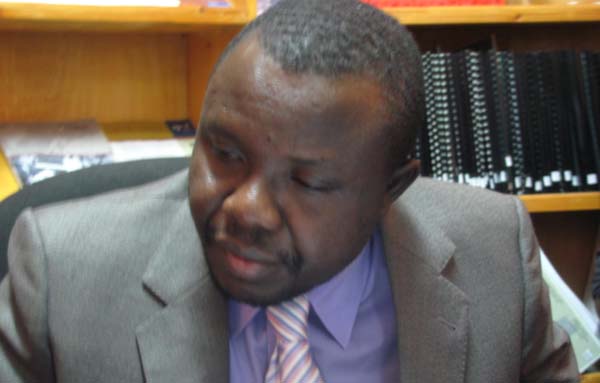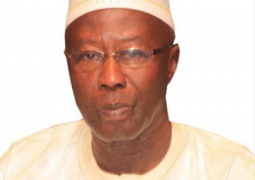
The
Gambia Investment and Export Promotion Agency (GIEPA) has decided to inject
fresh impetus into the exportation of products of indigenous businesses in The
Gambia.
This
was disclosed to the media in a conclave held at Giepa head office on
Wednesday, where some indigenous businesses were orientated on the Agency’s new
export promotion strategy, known as Export Advancement Programme (EAP),
spearheaded by its Business and Export Development Department.
The
Gambia’s import bill far outweighs its export earnings, which is a phenomenon
that must be changed to reduce the pressure on the Gambian dalasi in chasing
the comparatively meagre foreign currencies or international trading currencies
in the country, such as the US dollar, the Euro and the pound sterling.
There
are also other reasons why exportation of products by home-grown businesses
should be supported and promoted.
The
Export Advancement Programme (EAP) was initiated to promote value addition,
foreign exchange earnings, and employment creation, said GIEPA’s Export
Development Manager Lamin Gaye.
The
importance of export performance cannot be overemphasised, as the country has
been witnessing low performance of export, trade deficit, whilst import
surpasses export, Mr Gaye explained.
“The
EAP was, therefore, initiated for the promotion of export for national
development,” he said.
“The
programme is also out to prepare indigenous businesses to be ready to do their
business well and be able to export.
“It
is also geared towards identifying weaknesses and strengths of the local
businesses to help them to overcome their challenges over time, and become
viable business enterprises that bring in needed foreign currencies to meet the
national import bill.”
Such
businesses would also continue to grow and create more employment opportunities
for people in the country, he added.
In
his remarks on the occasion, GIEPA Officer-in-Charge Momodou Drammeh encouraged
the businesses qualified to take part in the pilot phase of the project, saying
they should take the programme with seriousness to ensure the objective is
realised.
“We
want to look at areas that can steer the export promotion initiatives of this
country, as exporting transformation has critical areas that would steer the
country’s economy,” OIC Drammeh said.
“This
will take the economy to higher heights, create jobs, and help our brand as a
country,” he added.
He
advised the businesses involved in the project to take up the opportunity and
make good use of it.
“Let’
s go all the way to ensure that we are successful in this endeavour that one
day we can all rip the benefits and be proud of our country,” he said.
In
his remarks, Deputy Permanent Secretary at the Trade Ministry, Lamin Dampha,
said the creation or establishment of an export-promotion agency in 2010 was a
conscious decision by government to tackling the huge imbalances between the
country’s import bill and export earnings.
“In
2010 the Government made a conscious decision to create an export-promotion
agency, and also to come up with a national export strategy. There is a reason
why government did that,” Mr Dampha said.
“If
you look at the export-import data in this country, the variance is too much;
it is very huge. Without making a conscious decision to close that gap, it will
be very difficult for us to solve the problems associated with it.”
He
said further that in development process, it is exports that pay for imports,
but not the other way round.
“That
is the reason why we are experiencing foreign exchange problems here and there.
It is because the demand for foreign exchange far outweighs the supply of
foreign exchange in this country,” he said.
He
said the initiative is a welcomed programme that should be embraced by the
companies and enterprises that have qualified to embark on the export strategy
process.
“We
are very much hopeful to see the outcome or result of this initiative,” Mr
Dampha said, as he encouraged the beneficiaries to take the programme
seriously.
He
thanked GIEPA, particularly its business and export development department for
the initiative.
“Our
doors are open to supporting you in this endeavour,” he said.
In
her remarks, GIEPA Director of Business and Export Development Department,
Mariama T. Fatajo, explained the rationale behind the selection of the
businesses that partake in the programme.
She
said EAP is a six-month pilot programme initiated by the business and export
development department of GIEPA. The programme trains and supports businesses
all the way in ensuring that they successfully be in a position to fully embark
on substantial exportation of their products.
More
businesses will be brought on board as the project unfolds successfully, she
said.
Exports
by The Gambia contributes about 9.4% to the GDP, which cannot make up for the
import bill of the country, hence some changes and transformation are needed to
alleviate the huge imbalances in the import bill and export earnings of the
country.
“We
want to help our indigenous businesses to involve more in the export drive of
the country,” she said.
Some
of the businesses that have so far qualified to engage in the pilot phase of
the programme are Nifty ICT Solution and Finish Profiles (Gambia) Ltd.
However,
their strength or ability of meeting the challenges of successfully running
their businesses, producing and exporting to the international market would be
determined by how much the challenges of running a business in the country are
overcome.
Some
of the challenges faced by most businesses in the country are lack of finance
and credit facility, taxes by Gambia Revenue Authority (GRA) and lack of
appropriate and competent personnel and skilful staff, among other obstacles.
It
was, therefore, deduced that the EAP will not be “successful without the
positive participation of other sectors”.


